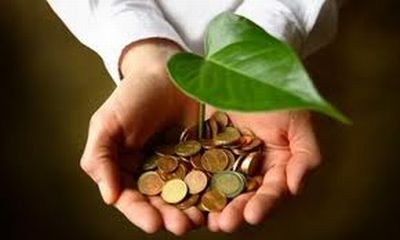Green Economy: Opportunities and Challenges to Africa

 |
| Photo courtesy |
Commitment to building a green economy brings its own challenges. Although switching to a green growth path may enable leapfrogging of dirty and inefficient technologies, there are more fundamental dilemmas to grapple with including costly adaptation and path dependence. Radical changes would be required in behaviour from government, firms and consumers and matched by sufficient financial resources if this approach is to succeed. We also face a predicament in the sense that while the pressing priority for most African countries is to promote growth that creates jobs the immediate effect of on-going growth is a short-run increase in demand for food, energy, and water that may further burden the environment.
It is against this background that we must examine how best the green economy can bring about structural transformation in Africa. In doing so, however, we must note that Africa has been growing quite steadily since the turn of the new Millennium with growth rates averaging about 5%. We therefore need to take this situation into account as we try to shift to a green growth trajectory, and especially as our major development partners are also grappling with debt, unemployment and slow growth. Moreover, we must strive to ensure that our growth processes provide job opportunities for young people and give them hope for the future.
In other words, to ensure that the green economy contributes to structural transformation in Africa, we have to overcome some of the challenges I have just outlined. It would also mean providing a persuasive vision for the green economy, promoting green growth, determining key sectoral priorities and establishing frameworks for coordination at national and international levels.
If the green economy is to drive a process of structural transformation it would be important to convey a clear vision to all stakeholders of what it entails and what is required to bring it about. Creating awareness about the concept is an important and necessary first step in meeting this very important requirement, just as it would be necessary to highlight its potential contribution to growth and structural transformation.
Quite fortunately, Africa has an abundance of natural resources such as minerals, fisheries, forests, wind, hydro and solar which provide it with options for their long-term use in an eco-friendly manner. Similarly, it is possible to drive a green growth agenda through well-targeted investments in renewable energy and manufacturing processes that minimize pollution and release of hazardous and toxic waste. This also points to the opportunities that abound in recycling and proper waste management.
The green economy would also need to be properly coordinated with on-going processes and must therefore be integrated in national development plans and strategies. African countries like Ethiopia, Kenya, Morocco, Rwanda and South Africa to mention but a few are good examples of how the green economy could be used to create jobs, generate energy and aim towards carbon-free targets. In addition, governments also have a role in establishing policy frameworks that will prioritize investments in the green economy and create incentives to overcome negative externalities and encourage private actors to embrace the idea.
It is also important that international governance of the environment promotes rather than hinders green growth. There is legitimate fear that a green economy may allow for trade protectionism and the imposition of additional policy conditionalities but this need not be the case if we promote and adopt global norms that make it easier to produce and trade in green goods. Additionally, since developed economies have the resources and technological capabilities needed to undertake required changes, serious consideration should be given to how best to assist African countries to implement agreed outcomes including through the provision of accessible finance, building of local capacities, and access to green technologies.
By Abdoulie Janneh.
United Nations Under-Secretary-General and Executive Secretary of the Economic Commission for Africa.
